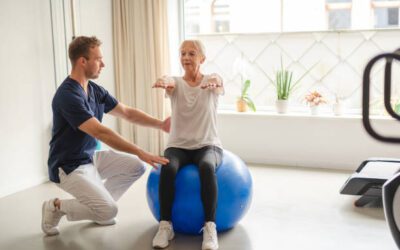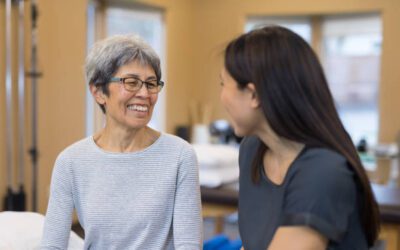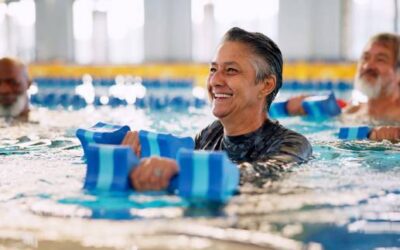BLOG
Most Popular Posts
Speech Therapy After a Stroke: What to Expect and How It Helps
A stroke can change the way a person communicates, understands language, and even swallows food or drinks. These changes often come as a shock, not only to the individual but also to their family and caregivers.
How to Manage Pain During Recovery with Physical Therapy
Recovering from injury, surgery, or chronic musculoskeletal conditions often involves an unavoidable reality: some level of discomfort. Physical therapy is designed to restore mobility, strength, and function, but the process can temporarily increase soreness as tissues adapt to new demands. Effective pain management during recovery is therefore not about eliminating all sensation, but about understanding pain, responding to it strategically, and ensuring it supports rather than disrupts progress.
Comprehensive Care for Seniors: Integrating Physical and Mental Health
Recovering from injury, surgery, or chronic musculoskeletal conditions often involves an unavoidable reality: some level of discomfort. Physical therapy is designed to restore mobility, strength, and function, but the process can temporarily increase soreness as tissues adapt to new demands. Effective pain management during recovery is therefore not about eliminating all sensation, but about understanding pain, responding to it strategically, and ensuring it supports rather than disrupts progress.
Stroke Recovery Starts With Speech: Reclaim Daily Life And Confidence
A stroke can disrupt essential functions that many seniors once relied on without effort. Communication, swallowing, memory, and the ability to process language may all be affected. These limitations can feel overwhelming, especially when they interrupt daily routines or isolate a person from loved ones. Speech therapy provides a structured pathway back to clarity, safety, and independence. It focuses on restoring speech, strengthening cognitive skills, and supporting emotional recovery throughout rehabilitation.
Physical Therapy for Hip and Knee Injuries in Seniors
Hip and knee injuries are among the most common mobility challenges faced by older adults. Whether caused by age-related degeneration, arthritis, falls, or long-term wear on the joints, these conditions can significantly limit independence. When pain or stiffness makes it difficult to walk, stand, or rise from a chair, seniors often find their daily routines disrupted. Physical therapy offers a structured, evidence-based approach that restores strength, reduces pain, and helps seniors regain confidence in their movement.
The Power of Hydrotherapy for Aging Joints and Muscles
As adults enter their later years, the natural wear on joints and muscles becomes more pronounced. Cartilage thins, flexibility declines, and conditions such as osteoarthritis, chronic back pain, and muscle stiffness begin to affect day-to-day comfort. Hydrotherapy has emerged as a gentle yet highly effective approach to easing these age-related changes. Using warm water, buoyancy, and controlled movement, it creates an environment where the body can move with less strain and significantly more comfort.
How Physical Therapy Helps with Chronic Back Pain in Seniors
Chronic back pain is one of the most frequent complaints among older adults, affecting mobility, independence, and overall quality of life. As the spine undergoes natural age-related changes—such as disc degeneration, reduced muscle elasticity, and joint wear—seniors often experience stiffness, inflammation, and persistent discomfort. These issues can escalate when combined with sedentary habits, weakened core strength, or previous injuries.
The Importance of Vitamin D & Calcium for Aging Bones
As people grow older, maintaining bone health becomes a critical part of preserving mobility, independence, and overall quality of life. Aging bones naturally lose density over time, increasing the risk of fractures, osteoporosis, and long recovery periods after injury.
The Benefits of Physical Therapy for Aging Bodies
Aging brings natural changes to the body, including reduced muscle mass, joint stiffness, balance challenges, and slower recovery from injury. While these changes are expected, they do not have to lead to loss of independence or diminished quality of life. Physical therapy plays a critical role in helping older adults maintain mobility, manage pain, and stay active in a safe, structured way. Rather than focusing only on recovery after injury, physical therapy for aging bodies is increasingly viewed as a proactive approach to long-term health and functional longevity.
Best Stretches for Seniors to Maintain Flexibility
Staying flexible is one of the simplest yet most powerful ways for seniors to preserve independence, reduce pain, and improve quality of life. As we age, muscles naturally lose elasticity, joints stiffen, and balance may decline. Regular stretching counteracts these changes, promoting mobility and preventing injuries that often come from sudden movements or falls.









